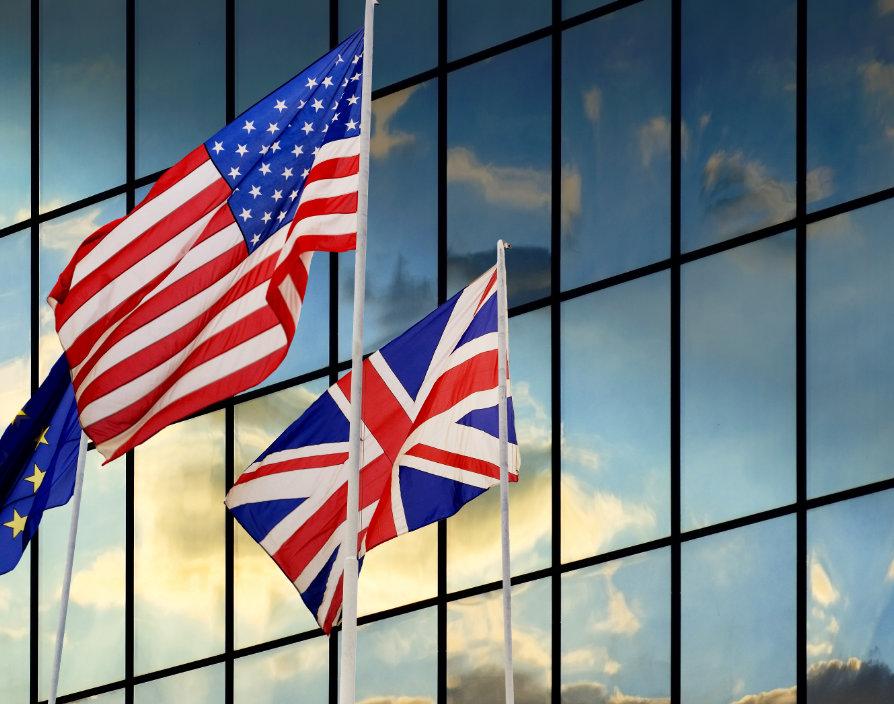With over 350 million consumers and remarkable diversity across sectors, including services, manufacturing, finance, and technology, it can offer unmatched potential for companies poised for cross-border expansion.
Many companies, particularly those of European origin, have recognized the potential of this market and established operations in the U.S. through expansion or acquisition of existing entities. According to the most recently available figures published by the U.S. Bureau of Economic Analysis (BEA), expenditures by foreign direct investors to acquire, establish, or expand U.S. businesses totaled $177.5 billion in 2022, with European investment accounting for just over 57 percent of that figure.
The already strong interest in expansion into the U.S. market is likely to be further enhanced by government initiatives, including the Inflation Reduction Act (IRA), which provides for $369 billion of subsidies for U.S. green infrastructure projects and is aimed at attracting new inward investment. This comes on the heels of the CHIPS Act, which incentivizes technology investment in the U.S. and clears new paths for industry growth.
The U.S. is a logical next step for many SMEs. Although the American market is full of unique opportunities, it can also come with unexpected challenges and unforeseen risks. Knowing how to approach a U.S. expansion can be daunting – but armed with the right knowledge and advice, it need not be.
Adopting a U.S. business mindset
Local culture and customs have a major impact on the way business is done anywhere in the world, and the U.S. is no exception. While this may seem like a relatively minor issue, it is in fact one of the most important factors that companies expanding into the U.S. fail to consider. Companies must have a sound understanding of the societal and business cultures they are entering into given their impact on all aspects of operations.
The most significant difference to consider is the American business mindset, which emphasizes moving forward at pace and not allowing rules and regulations to become mental blockers, which can lead to negative thinking and an unnecessary hindrance to progress. and with less regard for rules and regulations that can be an unnecessary hindrance to progress. This doesn’t mean that U.S. companies are prepared to ride roughshod over rules and regulations, but it does mean there’s a fundamental distinction between European and U.S. business culture that is supported by the local regulatory environment. U.S. governance places a strong emphasis on enabling business prospects, and the American corporate mindset reflects that.
In Europe, companies are used to rigid rules and regulations related to all aspects of operations. Strict compliance is always front of mind. In the U.S. on the other hand, since common and case law form the basis of the regulatory framework for business, compliance with some aspects of operations (HR and auditing requirements for example), can be less black and white than in European countries. As a result, new entrants to the U.S. need to adopt a less constrained mindset to thrive in this market. That is to place higher importance on acting first and fast, and to regard regulatory compliance details with more workability. Essentially, there is a business risk approach and risk aversion analysis to keep in mind.
Understanding the differences between U.S, and European business cultures
It has long been observed that the U.S. is a highly entrepreneurial country, where a higher percentage of the population aspires to start businesses than in Europe, for example. Despite the rapid economic growth of emerging markets, the U.S. economy remains the largest in the world and it can still justifiably be called ‘the land of opportunity’. In large part, this can be credited to the extent to which it embraces industry, alongside a higher appetite for risk-taking than in similar countries.
That’s not to say that European companies and individuals lack in entrepreneurial spirit. The fact that many companies of European origin are establishing themselves in the U.S. is evidence of that. However, among European business cultures there can often be a higher tendency to adopt more conservative outlooks. This is often illustrated in slower adoption of external trends, lower propensity for industry disruption, and stronger emphasis on long-term stability. A good grounding in the key differences in business cultures between these geophagies is crucial and can lay the foundations for success.
Three key differences in business cultures:
- A greater appetite for risk – The U.S. has a far greater appetite for business risk than is typical in Europe, which can enhance the possibilities for rapid business growth. This is reflected in capital raising opportunities (in general, VC money can be more readily accessible than in Europe) and is facilitated by a regulatory environment that supports growing businesses, allowing them to adapt to current market conditions quickly. For example, should the need arise, businesses can reduce the headcount of their workforce with a greater degree of flexibility and at less cost than is generally the case in Europe.
- Embracing failure as a path to success – U.S. business culture embraces failure in a manner that is less apparent in Europe. Entrepreneurship is a rocky road, and the success of a business is never guaranteed. A major difference between the two cultures in terms of business mindset is that in the U.S., failure of a venture is often seen as a path to success. In fact, VCs are often open to entrepreneurs whose previous ventures may have failed as they are seen as having benefited from this experience.
- Pace and agility – It’s well-known that the U.S. business culture is very fast-paced but it’s worth bearing that in mind as new entrants to the market can be taken by surprise by how this can impact operations. Speed of delivery and agility should be the primary focus for all companies expanding into the U.S. This can be seen not only in business operations but in the expectations of American consumers.
Ultimately, the allure of the U.S. market for European companies seeking expansion is undeniable, driven by its vast consumer base, sector diversity, governmental advocacy, and economic dynamism. The increasing trend of European companies establishing operations in the U.S., as evidenced by substantial foreign direct investments, reflects the recognition of opportunities. However, the key to successful expansion lies not only in seizing opportunities but also in understanding and embracing the distinctive U.S. business mindset.
The cultural disparities, particularly the emphasis on agility, risk appetite, and the acceptance of failure as a stepping stone to success, necessitate a recalibration of strategies by European entrants. As the U.S. remains a land of entrepreneurial opportunity, adaptability to the local business culture is crucial for thriving in this dynamic market. By navigating these differences with foresight and flexibility, European companies can position themselves to harness the full potential of the U.S. market and contribute to their long-term success on a global scale.
Share via:









































